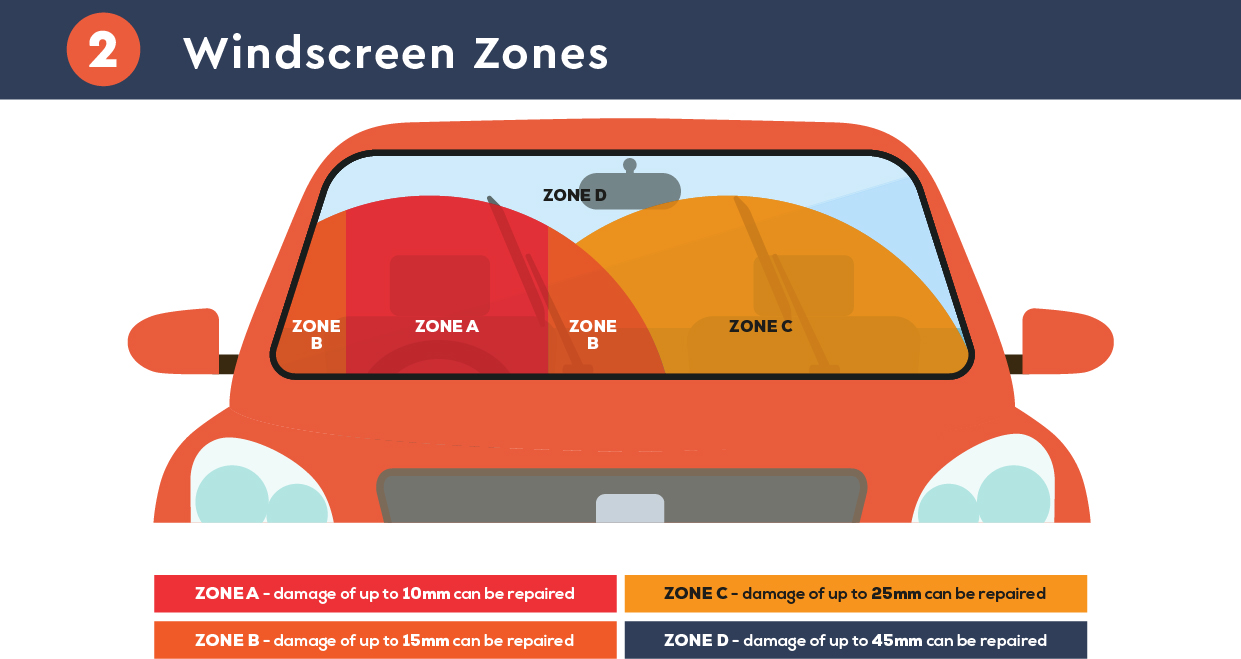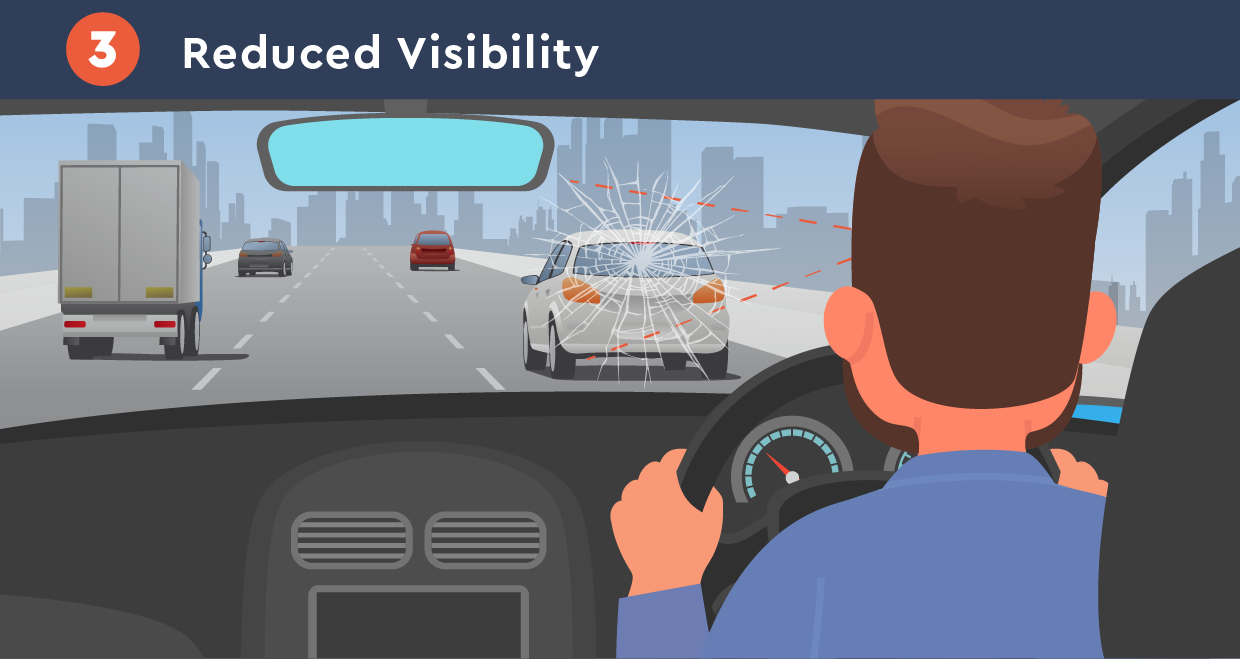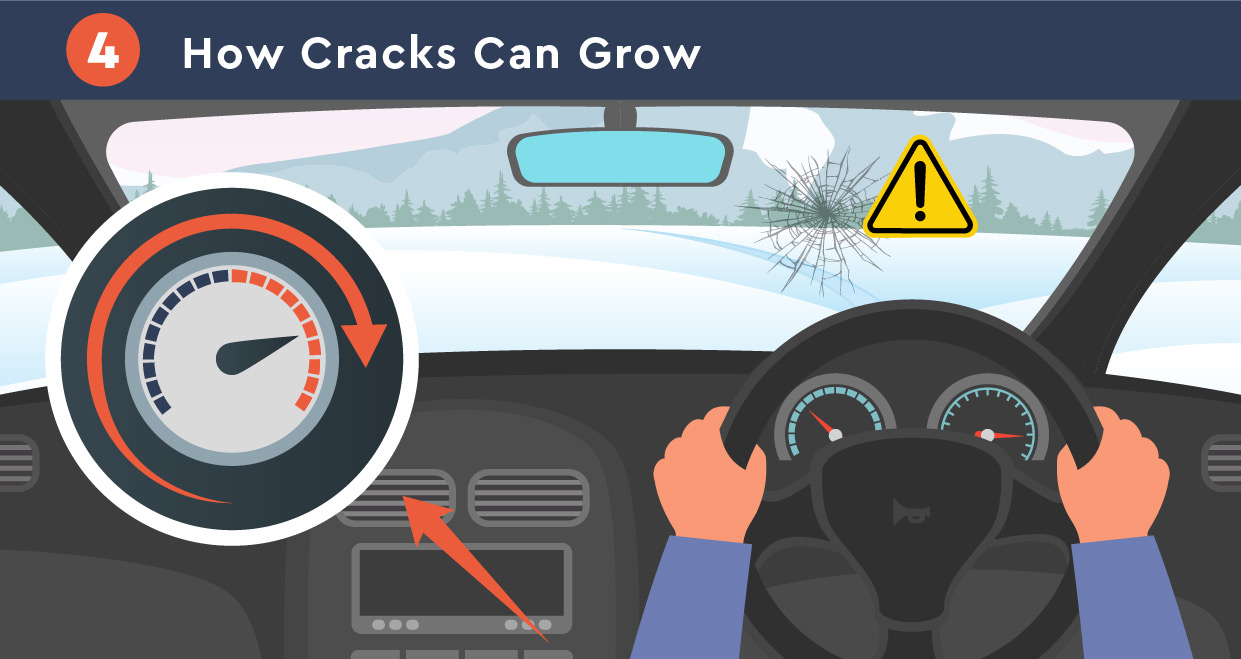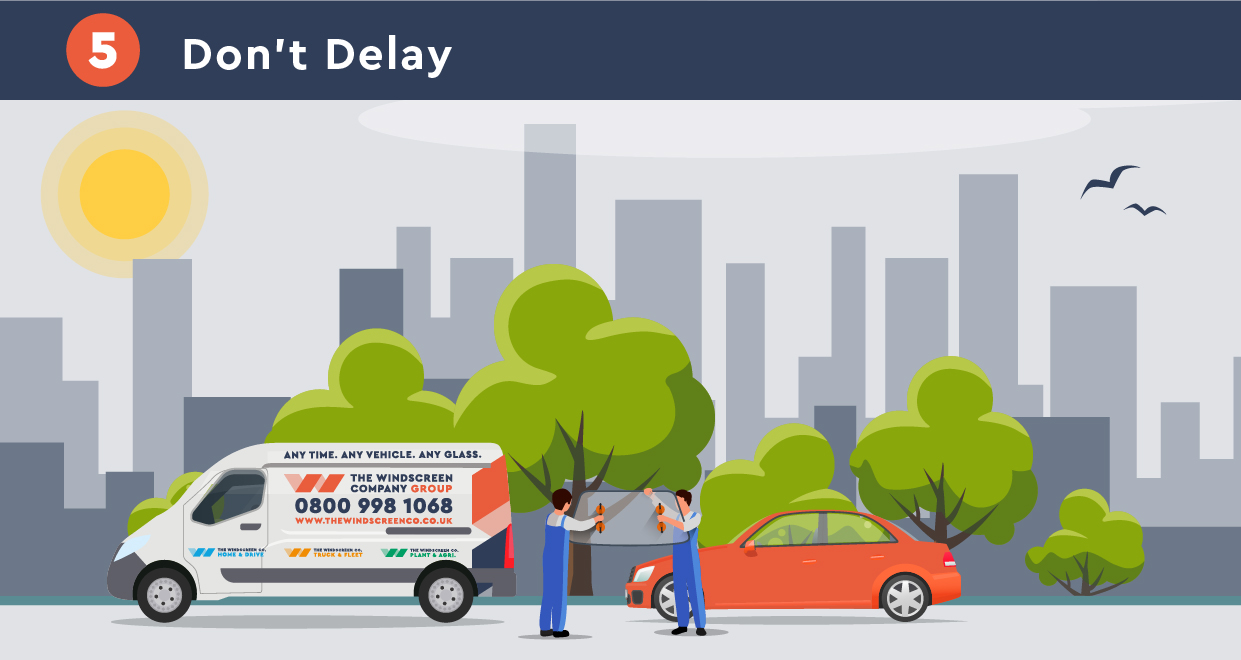We are hiring! Are you an experienced technician? Join our outstanding team »
Is it Legal to Drive with a Cracked Windscreen in the UK?
Reading time 4 minutes • Last updated on May 14th, 2024
Categories Driving Law »
We are hiring! Are you an experienced technician? Join our outstanding team »
Is it Legal to Drive with a Cracked Windscreen in the UK?
Reading time 4 minutes • Last updated on May 14th, 2024
Categories Driving Law »
Last updated on May 14th, 2024What does this mean?
Suffering a cracked windscreen is a commonplace occurrence which many motorists will have experienced but is it legal to drive with a cracked windscreen in the UK?
Table of Contents:
Driving with a cracked windscreen can be considered a motoring offence if the windscreen crack obscures the driver’s vision.
The Highway Code asserts that all glass in a car should be in good condition, especially the windscreen, and that the driver needs to have a full view of the road ahead.
The problem with having a cracked or chipped windscreen is that, unless visibility is reduced considerably, the temptation may be to delay a windscreen repair or windscreen replacement until a later, more convenient date.
However, driving with a cracked windscreen may mean you are committing a motoring offence and, even if this isn’t the case, you could be placing yourself and your passengers in danger of being involved in a serious accident.
Its name may suggest that the piece of glass that separates you from the outside is nothing more than a barrier against wind, rain and snow but in fact the windscreen also provides vital structural reinforcement to the vehicle’s body as a whole.
Therefore a windscreen that is cracked may be illegal and could cause the entire windscreen to fail, leading to potentially disastrous consequences.
A car will fail its MOT Test if there is a crack or chip that is directly in the front of the driver’s line of vision that exceeds 10mm in diameter.
The area directly in front of the driver, known as the A-Zone (which is 290mm wide and in live vertically with the steering column), is the most critical part of the windscreen element of the MOT. Any damage to the A-Zone can lead to an instant MOT Failure.

On the rest of the windscreen, damage must not exceed 40mm.
Clearly, waiting for the next scheduled MOT is not sensible if your vehicle suffers a cracked windscreen. Damage, especially in the A-zone, may mean the driver’s vision is impaired, increasing the possibility of an accident involving other vehicles or pedestrians. In this situation, if driving with a defective windscreen, the vehicle’s owner would potentially face accusations of improper maintenance.

Even small areas of damage within the accepted dimensions can rapidly worsen and vehicle owners should bear this in mind. A cracked windscreen means that the glass is less likely to withstand the considerable pressures caused by driving at high speeds and by extremes of weather. For example, a small crack in winter when the windscreen is cold can suddenly expand if subjected to the in-car heating.

The windscreen is essential in protecting you and your passengers from danger, such as high-speed missiles, like stones and loose chippings, and to help the vehicle body retain strength and stability. In an accident a cracked windscreen has the potential to enhance the risks to the occupants of a vehicle.
For example, an airbag which deploys in an accident strikes the windscreen with considerable force; if the glass is already cracked, the airbag may deploy through the windscreen instead of forwards towards the driver or front seat passenger, with serious consequences.

If you are unfortunate to suffer a cracked windscreen, you should not ignore the damage or delay its replacement until a more convenient time. For the safety of yourself, your passengers and other road users, you should obtain immediate professional advice and be prepared for the necessary replacement of the glass as a matter of urgency. For a relatively low excess, you could be helping to prevent a road accident, the long-term consequences of which could be far more serious.
Our friendly team at The Windscreen Company are professionals in delivering windscreen repair and replacement services. If you’d like more details on whether it is legal to drive with a cracked windscreen or information on any other of our services, speak to us today by calling [ld_default].

Click here to find your local branches
All information was collected from independent sources and was correct at the time of writing.
The information within this article was accurate on the date the article was last updated based on the information that was openly available on the topic online. The Windscreen Company accepts no liability for any loss or damage caused by or connected with any error or omission in this article. You should make your own judgement in regards to use of this document and seek professional advice on your particular circumstances.